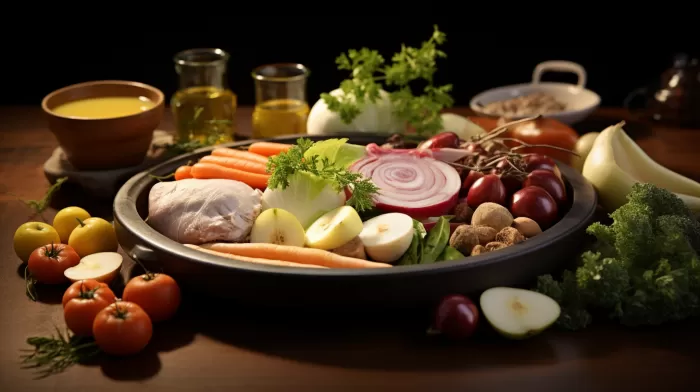The struggles I faced within my digestive system were once unbearable: constipation, diarrhea, stomach pains, and bloating were common occurrences. It wasn’t until I went on the paleo diet that my digestive system finally stopped complaining. A significant cause of the problems I faced was due to a condition known as “leaky gut.”
The Consequences of Leaky Gut
The digestive tract is responsible for keeping allergens and pathogens from entering the body; however, when you consume grains almost every day, spaces may open in the walls of the intestines. Consequently, this allows the undesirables in your food to breach the digestive barrier, causing various maladies. In my case, my sensitivity to gluten intensified the discomfort.
The effects of leaky gut can lead to intestinal inflammations, such as Crohn’s disease, ulcerative colitis, and irritable bowel syndrome. Additional problems can include skin rashes and a worsening of autoimmune conditions, such as rheumatoid arthritis and celiac disease.
If you experience any of these difficulties, it’s crucial to heal the walls of your digestive tract and alter your diet. Continuing to eat the refined, grain-heavy foods that most people consume today is not a solution.
Foods That Cause Leaky Gut
The most problematic foods contributing to leaky gut include:
- Grains, such as wheat, barley, rye, and corn.
- Dairy foods, like milk and cream.
- Legumes, including beans, alfalfa, peanuts, and soy.
- Refined sugar, especially high fructose corn syrup.
- Heavily processed vegetable oils, like cottonseed, corn, and soy oil.
- Processed food as manufacturers can add ingredients not listed on packaging. Furthermore, processed foods may be cross-contaminated with wheat, other grains, and allergens.
- Beverages containing alcohol, caffeine, and/or sugar.
For some individuals recovering from leaky gut, nuts and seeds may also lead to digestive problems. If you are allergic to specific foods, it’s best to avoid those items.
Why are Some People More Susceptible?
Researchers are beginning to understand why certain individuals are more susceptible to leaky gut than others. Research at Emory University has shown that some possess immune systems that can cope better with a leaky gut, avoiding the inflammation issues that arise from a porous intestinal wall.
However, the Emory researchers note that stressful events and inflammatory foods may cause digestive problems in practically anyone. According to researcher Charles Parkos: “Breakdown of the intestinal barrier can occur as a result of intestinal infections or stress. The normal response involves several components of the immune system that help heal the injury while controlling invading bacteria. When this normal response is defective and there is a leaky barrier, the risk of developing IBD (inflammatory bowel disease) is increased.”
Foods to Heal Your Gut
Healing your gut may be a time-consuming process. A crucial first step is taking probiotic supplements to supply beneficial bacteria helping maintain the health of the intestinal wall. Fermented foods containing probiotics are also essential, such as sauerkraut, kimchi, pickled fish, and kombucha (a fermented form of tea).
In addition, you should consume foods with fiber (prebiotics) on which the good bacteria can feed. These include a wide variety of fruits and vegetables, such as bananas, onions, garlic, sweet potatoes, leeks, and apples.
Many paleo experts recommend preparing organic bone broth to nurture the intestinal walls.
A Journey to Better Digestion
My journey to better digestion led me to discover the paleo diet. Some people may perceive me as obsessive about my fussiness over what I eat. However, after suffering through years of digestive distress, painful arthritis, strange rashes, mental fog, persistent high blood pressure, and other ongoing annoyances, I can’t afford to focus on how my food choices may annoy others. Instead, I’m grateful I found a diet that delivers better health.



